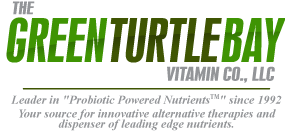Plastics Rebuffed
This was emailed to me by Snoops.com
Although there have not been studies conducted on this, I still have my concerns as I know heat does
Claim: Microwaving foods in plastic containers releases cancer-causing agents into
the foods.
Status: Undetermined.
Example: [Collected on the Internet, 2002]
Info for the Health Conscious
On Channel 2 this morning. They had a Dr. Edward Fujimoto from Castle Hospital on the program. He is the manager of the Wellness Program at the hospital. He was talking about dioxins and how bad they are for us. He said that we should not be heating our food in the microwave using plastic containers. This applies to foods that contain fat. He said that the combination of fat, high heat and plastics releases dioxins into the food and ultimately into the cells of the body. Dioxins are carcinogens and highly toxic to the cells of our bodies. Instead, he recommends using glass, Corning Ware, or ceramic containers for heating food. You get the same results without the dioxins. So such things as TV dinners, instant saimin and soups, etc. should be removed from the container and heated in something else.
Paper isn’t bad but you don’t know what is in the paper. Just safer to use tempered glass, Corning Ware, etc. He said we might remember when some of the fast food restaurants moved away from the foam containers to paper. The dioxin problem is one of the reasons.
Past this on to your family and friends.
Origins: This “health alert” began appearing in people’s inboxes in February 2002; the “Channel 2″ reference indicates it was someone’s summarization of a a short morning news health segment aired on KHON TV in Hawaii on 23 January 2002, which was then forwarded all over the Internet as “important health information.”
One- or two-minute health spots on local news programs are not ideal sources of medical information, however. While important basic information can be imparted in such a format, trying to explicate complex medical topics in a minute or two can easily mislead or confuse viewers, many of whom come away believing absolutely whatever they’ve heard (or think they’ve heard) because “a doctor on TV said it was true” — in this case an unshakeable belief that using plastic containers in microwave ovens causes cancer.
That a doctor (or, more accurately, someone bearing the title “Dr.”) appears on TV does not mean he’s a leading practitioner in his field; it generally means only that he has something to say that a news director considers newsworthy, accurate or not. (We point out here that the “Dr. Edward Fujimoto” identified in this piece is not a staff physician from “Castle Hospital” or a medical doctor; he’s a PhD serving as director of the Center for Health Promotion at Castle Medical Center in Kailua, Hawaii.) What TV news covers is dictated by ratings, not importance, and sensational claims get better ratings than straightforward, mundane information, even if the latter is more valuable to the viewing audience. It’s a pretty good assumption that if using plastic containers in microwaves — as millions of people have been doing for decades — posed a significant risk of cancer, you’d be hearing about it somewhere other than an e-mail forward of an anonymous summary of a morning news spot on a Hawaiian television station.
Is there really something to the central claim of this e-mail, that heating plastic in microwaves releases a cancer-causing agent into the food? It’s within the realm of possibility, but it must be stressed the FDA does impose stringent regulations on plastics meant for microwaving. Also, if there are dioxins lurking in the plastic containers we heat food in and the process of warming those receptacles looses those nasties into our ingestibles, we’ve yet to locate the studies that prove this. However, because most dioxins are dangerous compounds we want to have as little
to do with as possible, many people are cautious about using anything associated with them. So, if you’re one of the concerned, be sure that when you cover a dish you intend to microwave with ordinary plastic wrap you do not let the covering touch the food, because some of the plasticizer in the wrap — which may contain toxic chemicals, as opposed to does contain toxic chemicals — could migrate to what you’re cooking, especially foods high in fat. Alternatively, use waxed paper for this purpose. Those who are very, very cautious about the potential for dioxin contamination might choose to adopt the central point of the e-mail’s advice, which is to decant all items into glass or ceramic containers before microwaving.
But how real is this concern? According to Dr. George Pauli, a leading Food and Drug Administration scientist, not very. He acknowledged that some plasticizers do migrate into foods, particularly those containing a lot of fat, oil, or sugars. But research has found no ill effects from consumption of plasticizers in FDA-approved plastic wraps, Pauli said. Even so, others remain unconvinced, and those on both sides of the issue recommend not letting the wrap touch the food.
Barbara “touch of evil” Mikkelson
Additional information:
Microwave Cooking (USDA)
Last updated: 14 February 2002
The URL for this page is http://www.snopes.com/toxins/plastic.htm
Click here to e-mail this page to a friend
Urban Legends Reference Pages © 1995-2002
by Barbara and David P. Mikkelson
This material may not be reproduced without permission
Sources:
Burros, Marian. “Good Health Habits Can Reduce Risks of Hazards in Food.” The New York Times. 9 May 1990 (p. C1).
Hahn, Jon. “A Bad Rap for Microwaving Food?”
The Seattle Post-Intelligencer. 8 January 2002 (p. E2). Claim: Microwaving foods in plastic containers releases cancer-causing agents into the foods.
Status: Undetermined.
Example: [Collected on the Internet, 2002]
Info for the Health Conscious
On Channel 2 this morning. They had a Dr. Edward Fujimoto from Castle Hospital on the program. He is the manager of the Wellness Program at the hospital. He was talking about dioxins and how bad they are for us. He said that we should not be heating our food in the microwave using plastic containers. This applies to foods that contain fat. He said that the combination of fat, high heat and plastics releases dioxins into the food and ultimately into the cells of the body. Dioxins are carcinogens and highly toxic to the cells of our bodies. Instead, he recommends using glass, Corning Ware, or ceramic containers for heating food. You get the same results without the dioxins. So such things as TV dinners, instant saimin and soups, etc. should be removed from the container and heated in something else.
Paper isn’t bad but you don’t know what is in the paper. Just safer to use tempered glass, Corning Ware, etc. He said we might remember when some of the fast food restaurants moved away from the foam containers to paper. The dioxin problem is one of the reasons. Past this on to your family and friends.
Origins: This “health alert” began appearing in people’s inboxes in February 2002; the “Channel 2″ reference indicates it was someone’s summarization of a a short morning news health segment aired on KHON TV in Hawaii on 23 January 2002, which was then forwarded all over the Internet as “important health information.”
One- or two-minute health spots on local news programs are not ideal sources of medical information, however. While important basic information can be imparted in such a format, trying to explicate complex medical topics in a minute or two can easily mislead or confuse viewers, many of whom come away believing absolutely whatever they’ve heard (or think they’ve heard) because “a doctor on TV said it was true” — in this case an unshakeable belief that using plastic containers in microwave ovens causes cancer.
That a doctor (or, more accurately, someone bearing the title “Dr.”) appears on TV does not mean he’s a leading practitioner in his field; it generally means only that he has something to say that a news director considers newsworthy, accurate or not. (We point out here that the “Dr. Edward Fujimoto” identified in this piece is not a staff physician from “Castle Hospital” or a medical doctor; he’s a PhD serving as director of the Center for Health Promotion at Castle Medical Center in Kailua, Hawaii.) What TV news covers is dictated by ratings, not importance, and sensational claims get better ratings than straightforward, mundane information, even if the latter is more valuable to the viewing audience. It’s a pretty good assumption that if using plastic containers in microwaves — as millions of people have been doing for decades — posed a significant risk of cancer, you’d be hearing about it somewhere other than an e-mail forward of an anonymous summary of a morning news spot on a Hawaiian television station.
Is there really something to the central claim of this e-mail, that heating plastic in microwaves releases a cancer-causing agent into the food? It’s within the realm of possibility, but it must be stressed the FDA does impose stringent regulations on plastics meant for microwaving. Also, if there are dioxins lurking in the plastic containers we heat food in and the process of warming those receptacles looses those nasties into our ingestibles, we’ve yet to locate the studies that prove this. However, because most dioxins are dangerous compounds we want to have as little
to do with as possible, many people are cautious about using anything associated with them. So, if you’re one of the concerned, be sure that when you cover a dish you intend to microwave with ordinary plastic wrap you do not let the covering touch the food, because some of the plasticizer in the wrap — which may contain toxic chemicals, as opposed to does contain toxic chemicals — could migrate to what you’re cooking, especially foods high in fat. Alternatively, use waxed paper for this purpose. Those who are very, very cautious about the potential for dioxin contamination might choose to adopt the central point of the e-mail’s advice, which is to decant all items into glass or ceramic containers before microwaving.
But how real is this concern? According to Dr. George Pauli, a leading Food and Drug Administration scientist, not very. He acknowledged that some plasticizers do migrate into foods, particularly those containing a lot of fat, oil, or sugars. But research has found no ill effects from consumption of plasticizers in FDA-approved plastic wraps, Pauli said. Even so, others remain unconvinced, and those on both sides of the issue recommend not letting the wrap touch the food.
Barbara “touch of evil” Mikkelson
Additional information:
Microwave Cooking (USDA)
Last updated: 14 February 2002
The URL for this page is http://www.snopes.com/toxins/plastic.htm
Click here to e-mail this page to a friend
Urban Legends Reference Pages © 1995-2002
by Barbara and David P. Mikkelson
This material may not be reproduced without permission
Sources:
Burros, Marian. “Good Health Habits Can Reduce Risks of Hazards in Food.”
The New York Times. 9 May 1990 (p. C1).
Hahn, Jon. “A Bad Rap for Microwaving Food?”
The Seattle Post-Intelligencer. 8 January 2002 (p. E2).




